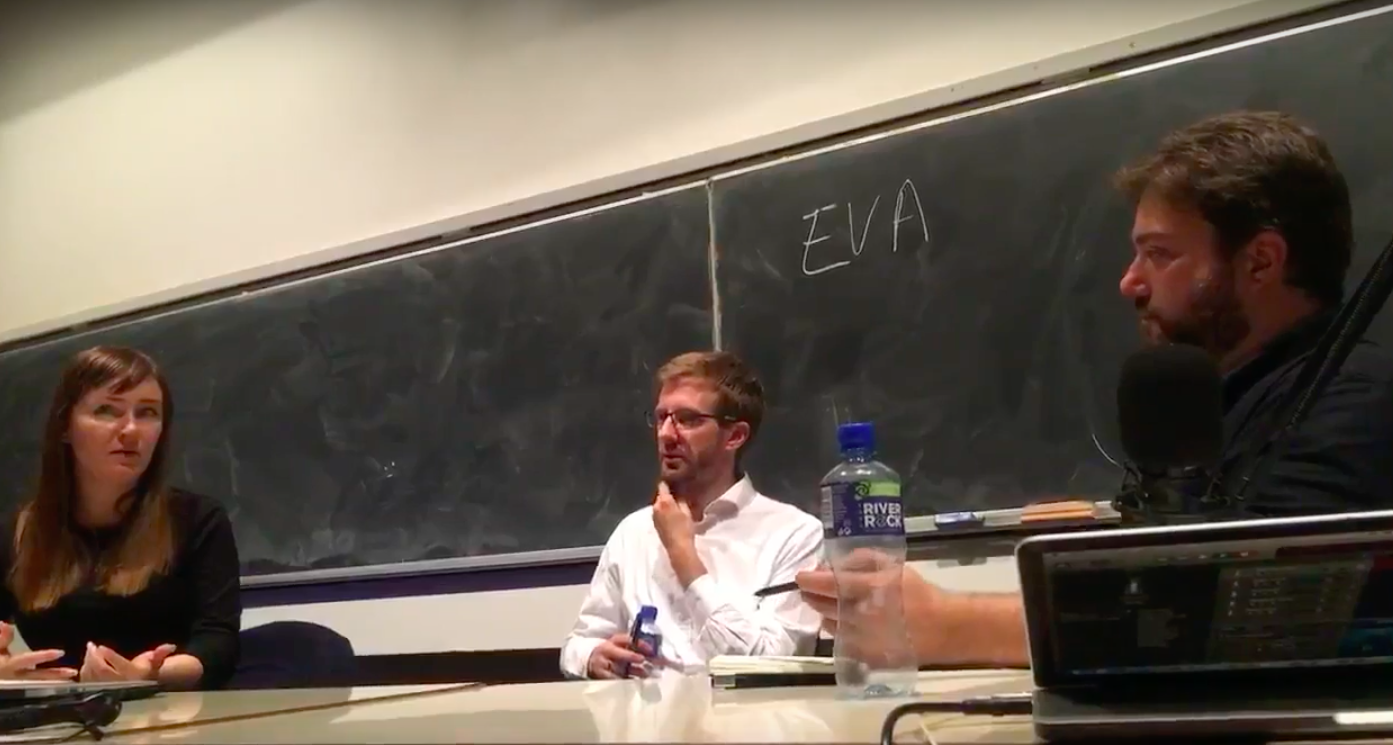
Last night’s debate between Dr Angela Nagle and Carl Benjamin, better known by the moniker Sargon of Akkad, was billed as something of a heavyweight clash between two titans of the online culture wars.
Hosted by Trinity Politics Society (Pol Soc) and supported by the Classical Liberal Society, the debate on whether classical liberalism is enough to rival the rise of identity politics was much anticipated and was expected to produce no shortage of controversy. However, the debate, which was moderated by Prof Oran Doyle, proved to be a rather calm and civil conversation between two people sharing equally fatalistic views on the rise of “identitarians” in our politics.
Indeed, pessimism was the overwhelming theme of the evening as both speakers, who in many ways represented diametrically opposing views on most issues, despaired at the gradual coarsening of our political conversations, a coarsening they attribute to the rise of identity politics.
Benjamin is a man who has made a career from attacking what he perceives to be the corrosive rise of identity politics of the left and has frequently courted controversy with his views on feminism. He spoke at length on the topic, readily admitting that he didn’t know whether classical liberalism was enough to combat the rise of identity politics. However, he argued vociferously against intersectionality and what sees as a sense of entitlement adopted by many on the left “based on the way people are born”.
By contrast, Nagle, a former lecturer in Trinity and the author of Kill All the Normies, was unequivocal in her criticism of the proposition. Drawing laughs from the packed lecture theatre, her deadpan delivery that for classical liberals “everything you dislike is going to happen, and your ideology offers no way of stopping it” concisely summed up her arguments against the proposition. She noted that liberalism, being the ideology of progress, therefore offered no way of adequately combating the rise of identity politics that classical liberals despair of as long as everyone “is consenting”.
While a lively debate between Nagle and Benjamin followed their respective speeches, it was only as the floor was opened up to questions from the audience that their respective fears of the rapid rise of identity politics came to the fore. For a large part, the pair, whose views are diametrically opposed in so many ways, agreed that the rise of intersectionality represented a serious threat to political speech, though more heated debate ensued on when the topic of conversation shifted towards the correct implementation of Marxism, or Nagle’s profession of belief in socialism.
Benjamin also made use of the evening to attempt to disassociate himself from the alt-right movement. Referring to the movement as “totalitarian”, he claimed to have worked tirelessly to disentangle the movement from his own. However, true to form, Benjamin did court some controversy as he defended the nomination of Brett Kavanaugh and casually claimed that in Western society “women are like some sacred class”, a statement which drew a bemused, if forceful, reaction from Nagle.
Overall however, the tone of the debate remained civil, with Benjamin, for the most part, struggling to rebut Nagle’s criticisms of merits of the classical liberalism as a method to combat the rise of identity politics.






